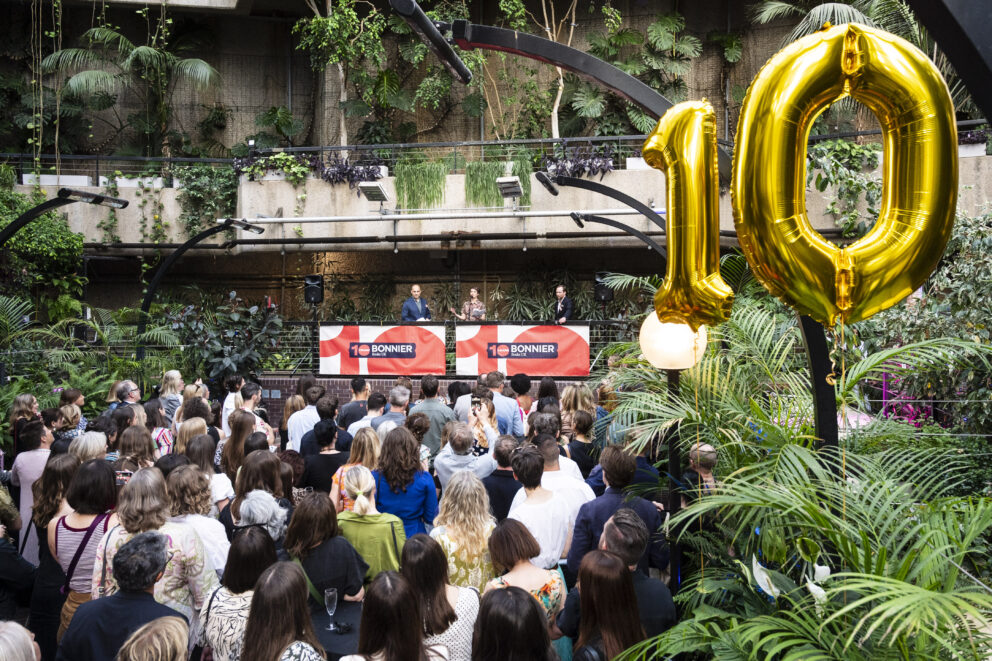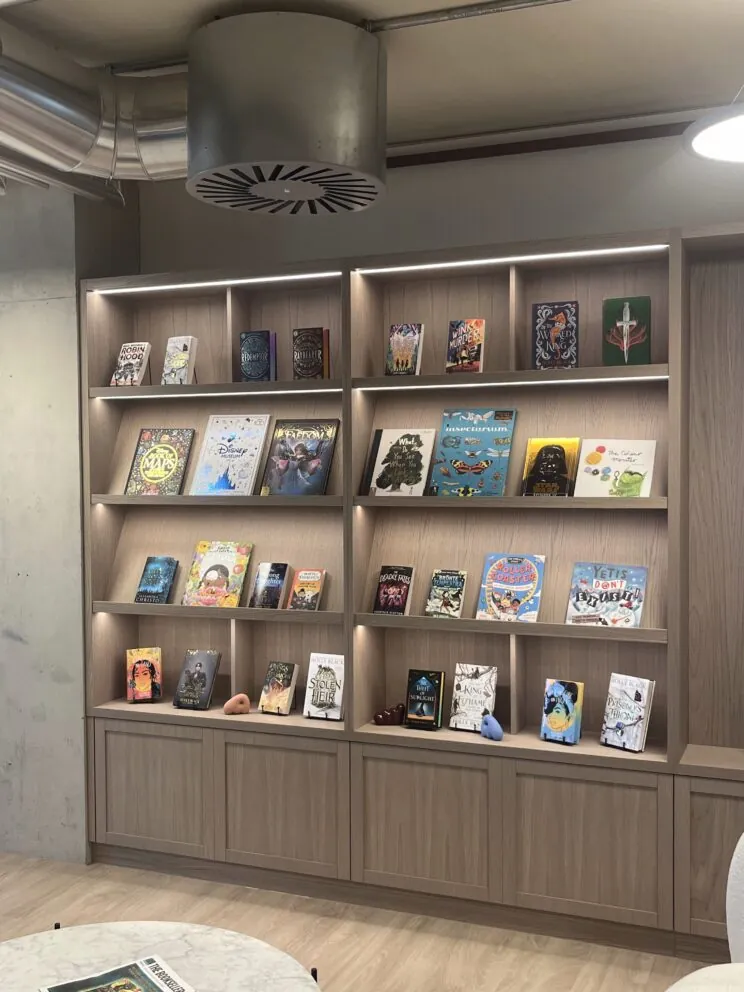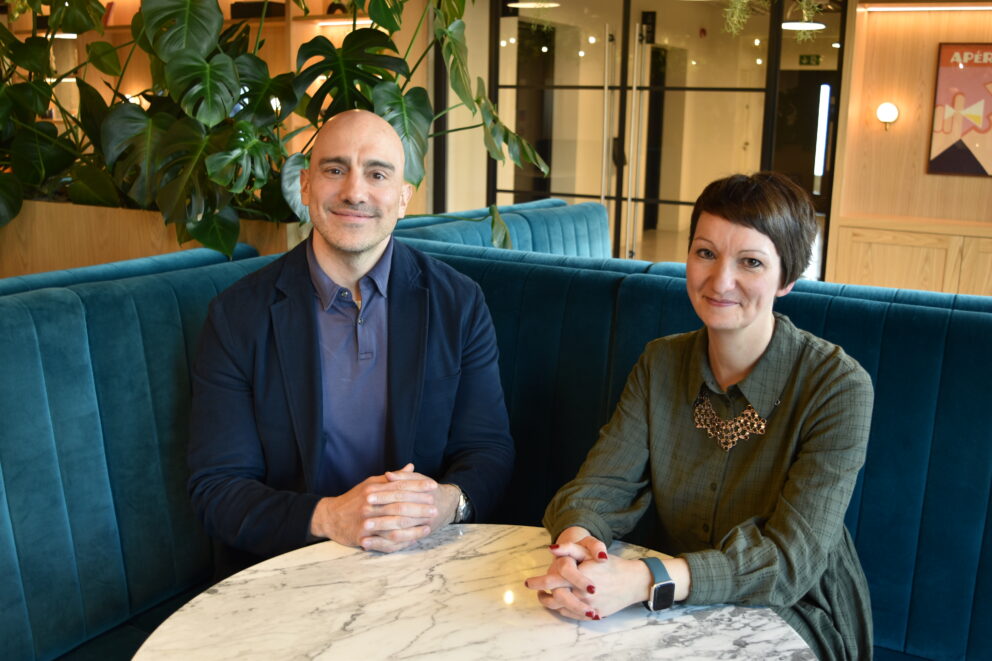“I grew up with characters I couldn’t relate to”: Yasmin Rahman on representation in Young Adult fiction
Yasmin Rahman’s debut novel, All the Things We Never Said, faces the challenging subjects of mental health, teenagers, and online communities. It’s also one of the few Young Adult books out there featuring a Muslim character where her faith is just a given — “not an issue, not part of the plot, just a thing that’s there.” We spoke to Yasmin about her journey to publication and what it’s like to be a debut author in 2019.
I want to write books about things that people don’t talk about but need to be discussed. Mental health is something that has started to get more attention in recent times, but I think there’s still a lot of work to do within the South Asian community.
Growing up in my family, and our culture, was very much about not talking about the horrible things, the difficult things. When you’re a teenager and everything is so confusing in your life, you just need someone to listen. I didn’t have that as a teenager, which is partly why I turned to writing. This is what motivates me — to try and get people to talk about the things that were never said.
“I started to question why I felt like I couldn’t write it [YA], and I started to think that maybe the fact that I felt like I couldn’t write it was the exactly the reason to do it.”
I’ve always loved Young Adult (YA) literature, but I didn’t think I could write it. I grew up reading these books that were full of white characters and problems and experiences that I hadn’t had myself.
My tutor in my first MA at Hertfordshire University said, “If you love it [YA] so much, why aren’t you writing it?” That really stuck with me. I started to question why I felt like I couldn’t write it [YA], and I started to think that maybe the fact that I felt like I couldn’t write it was the exactly the reason to do it.
My second MA was at Bath Spa University, which specialises in children’s literature. Part of the programme is the submission of part of a novel. At the interview for the MA, they asked me if I had any ideas on what I wanted to write. All The Things We Never Said has been in my head in some way or another for years, so I said, “I want to write a book about mental health with a Muslim protagonist. I don’t know how I’m going to get it out, but that’s what I want to write.”
I had a lot of ups and downs writing the book. I actually gave up at one point. When I came in to Bath Spa University I was very much wanting to write “issue-led” books. They can be hit and miss in the publishing industry. Writing about mental health and suicide is an especially touchy subject, and there is a thin line between being too much and just the right amount. I had a complete breakdown halfway through the course (which I always do when I’m writing a book). I felt like the book wasn’t going to sell because it’s so dark and it’s exploring issues that people don’t want to talk about. I thought maybe I should put it down and write something more commercial.
“That story was about Islamophobia and terrorism. I remember asking “Do you think I should write something more like that for this book?” It’s a hot topic, it’s commercial, I’m Muslim, and it would sell. I knew it would sell. And they said, “Yeah, you know what, it will sell, and maybe that is something to think about.”
I remember going to someone for advice about doing something more commercial and they agreed with me. It was around the time that I had a short story published in the A Change is Gonna Come anthology. That story was about Islamophobia and terrorism. I remember asking “Do you think I should write something more like that for this book?” It’s a hot topic, it’s commercial, I’m Muslim, and it would sell. I knew it would sell. And they said, “Yeah, you know what, it will sell, and maybe that is something to think about.”
I stopped writing All The Things We Never Said and started a novel about terrorism. I think I got about 2,000 words in and thought, “You know what, this isn’t me at all!”But I needed to get away from the story for a bit to realise that it wasn’t me, to be pulled back to it and understand where my heart lies. That was a key moment. I question myself at every stage, but it taught me that All The Things We Never Said is a story that will always pull me back.
I think I will always feel a conflict between what I want to write and what I think I should be writing. But I’m learning to ignore what I think people want of me and when to say no to things or push myself in the right direction. When I first met my agent, I was clear that I didn’t want to be pigeon-holed as a Muslim writer, someone who only writes about Muslim issues. They are very important to me, and they are prevalent in All the Things We Never Said, but Muslim issues are not all the book is about.
“With Mehreen, I wanted to write a Muslim character where her faith is just a given — it’s not an issue, it’s not part of the plot, it’s just a thing that’s there. That’s genuinely what I really want more of in books — to have Muslim characters who are at peace with their religion.”
It wasn’t until my teens that I started to read as much as I do now. I went through a phase of specifically seeking out Muslim authors, and it depressed me so much! It was always about the same three things — terrorism, arranged marriages, or someone struggling with their faith. Until maybe last year, I hadn’t read a book with a Muslim character where it wasn’t about their faith.
It’s sad because then I stayed away from Muslim fiction, I expected it all to be like that — the same old stereotypes. There is more diverse Muslim fiction coming out now, which is amazing.
With Mehreen [the protagonist in All The Things We Never Said], I wanted to write a Muslim character where her faith is just a given — it’s not an issue, it’s not part of the plot, it’s just a thing that’s there. That’s genuinely what I really want more of in books — to have Muslim characters who are at peace with their religion. It seems to be that most Muslim books I’ve read in the past have involved people struggling with their faith, but that’s not the case for the majority of us. While those kinds of Muslim books sell, it shouldn’t have to be a defining thing. We can have successful stories told about us without religion being the main issue.
“It’s been really nice to hear Muslim teenagers saying that they feel represented. That is the thing that I wanted most to do. I grew up with no characters that felt like I could relate too. To be able to give that to someone is just amazing.”
I’m at the point where reviews have started coming in. That is a minefield of its own. It’s been really nice to hear Muslim teenagers saying that they feel represented. That is the thing that I wanted most to do. I grew up with no characters that felt like I could relate too. To be able to give that to someone feels amazing.
We did an event for the A Change is Gonna Come anthology and there were these two Muslim girls — I think they were 13 or 14 years old. They hadn’t read the book, but they knew that I had a story in it. One of them came up to me and said, “You’re such an inspiration!” I cried. It was weird to think that I could be that person for someone. When I grew up there was just nothing like that about. It’s really nice to see more BAME authors and books coming out; it’s really nice to be part of that.



